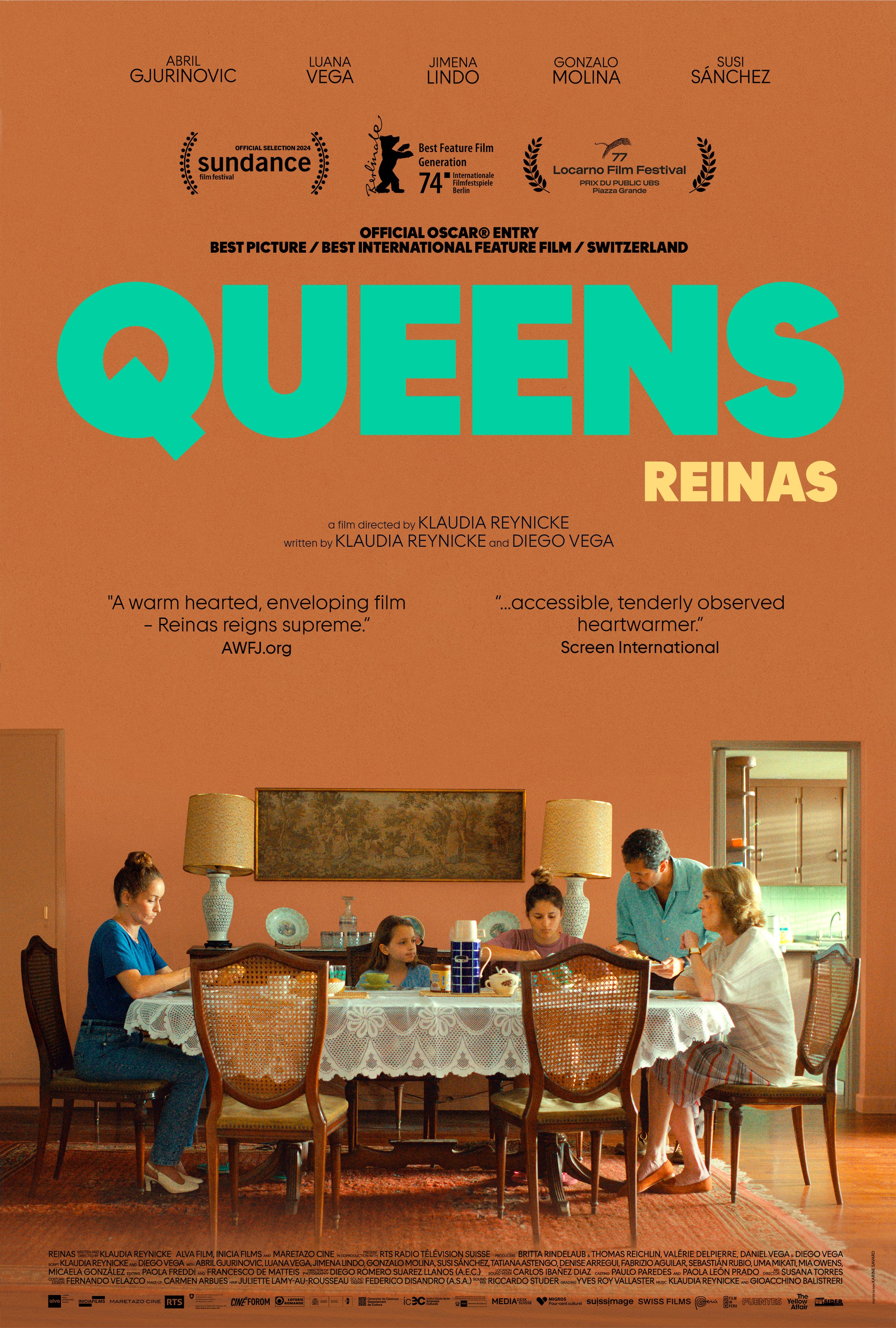
Posted By Robin Menken
Swiss-Peruvian director Klaudia Reynicke’s quiet family drama is set in 1992, during the economic collapse in Peru, a national curfew and the constant attacks of the far-left terrorist group Sendero Luminoso (The Shining Path).
An opening archival television news report features Peru’s minister of the economy announcing that in the next 24 hours, the price of milk will jump from 120,000 Peruvian intis to 330,000, the cost of sugar, now 150,000 intis, will double and the price of a baguette, 9,000 Peruvian inti, increases to 25,000 Peruvian inti overnight)
Easy going Carlos (Gonzalo Molina), known as "el loco" works as a taxi driver and night watchman, and barters black market sugar and whatever comes to hand to get by.
Estranged from his upper-middle class wife Elena (Jimena Lindo) and his growing girls- frisky teenager Aurora (Luana Vega) and younger sister Lucía (Abril Gjurinovic), Carlos shows up after along break and tries to spend time with his Reinas ("Queens.") Hurt by his long disappearance the girls are suspicious and wary, especially Aurora.
Elena (Jimena Lindo), has landed a job in Minnesota and has seized the chance to escape Peru's downward spiral. Before she can leave with her girls she needs Carlos official signature to authorize their daughters leaving the country.
It's the last few weeks before their trip and Carlos keeps postponing signing. Needing his signature and wanting his daughters to have time with him before the move to the safer U.S. Elena encourages him to spend time with the girls, and the wily teller of tall tales slowly wins them over.
Carlos will say anything to deflect responsibility for his actions: he wrestled crocodiles in the jungle, and has the scar to prove it; he's a secret police agent (and has the papers to prove it), he's a Quechua speaking archeologist. Lucía is easier to convince.
In a wry opening scene driver Carlos chats to his passenger. Claiming he's an actor, he lists off his roles in Hollywood productions, dropping the names of
Boris Karloff and Roger Corman, names which mean nothing to his good natured client.
Gonzalo Molina's laidback charm, especially in two lovely trips to the beach, creates a sort of mystery about Carlos, which Reynicke maintains. He moved to his own internal beat, satisfied with his dysfunctional Peter Pan life.
Carlos drives his old Lada across the dunes in a wonderful father daughter joyride which solidifies their new bond.
Carlo's sadness emerges as he begins to bond with his 'Reinas'. Even his use of the nickname takes on a new gravitas as he reluctantly starts to grow up. He struggles to avoid his habitual lying. The script suggests many reasons for his estrangement, including is possible political stance, but wisely lets it simmer undisclosed.
Conflicted Lucia wants to stay with her mother. Aurora has serious unfinished business in Lima and decides to try and stay with Carlos.
Clever shots and production values suggest the period in a contained way. Muted colors stylize he memory aspects of the period piece. There's an elegance to the home of wealthy Tita (played by Spain's Susi Sánchez), Carlos world is his beat up car and his uncle's warehouse.
Subtleties abound. The family’s housekeeper Vilma (Flor Castillo) refuses to pose in the family's farewell photos, and declines to stay late to clean, reminding her boss that she has a looong bus ride home before curfew.
If the film had been shot in the 90's I doubt her character would have been given that respect.
Reynicke's ensemble of actors, some from Telenovelas, create a warm fascinating bubble set against the chaotic times of a Police State. The chemistry between Luana Vega and newcomer Abril Gjurinovic is potent as the two sisters reluctantly pulled between worlds.
Klaudia Reynicke and Diego Vega Vidal's script resists over dramatizing the girl's dangerous curfew breaking adventure.
Klaudia Reynicke directed Il Nido (2016) and Love Me Tender (2019).























